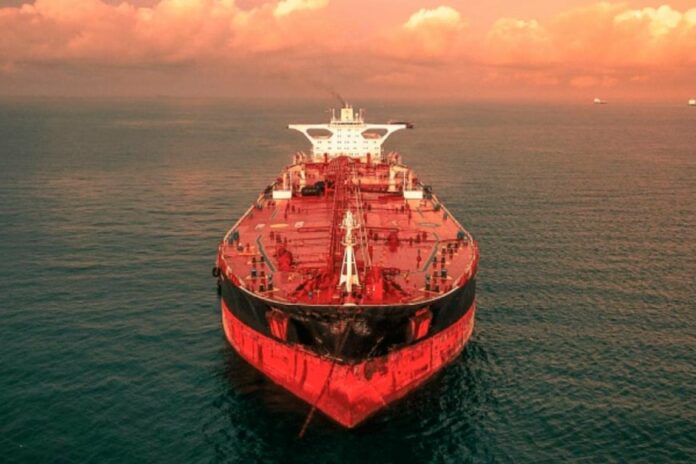According to Bloomberg, the incident occurred at approximately 00:15 local time, around 44 kilometers off the coast of the United Arab Emirates near the port of Khor Fakkan.
The collision involved the Front Eagle, a 335-meter supertanker operated by Frontline Plc and sailing under the Liberian flag, and the Adalynn, a smaller, 23-year-old tanker flying the flag of Antigua and Barbuda.
The Adalynn has frequently transported oil between Russia’s Ust-Luga port and India’s Vadinar and is widely considered part of the so-called Russian “shadow fleet.”
Frontline stated that the incident was purely navigational and not linked to the current regional tensions following Israeli strikes on Iran. A full investigation into the cause of the crash is underway.
The collision set off fires aboard both vessels. UK-based security company Vanguard Tech said there were no signs of foul play. The UAE National Guard confirmed the rescue of 24 crew members from the Adalynn, while Frontline reported that its crew was safe.
The incident occurred amid heightened alert in the region. The Strait of Hormuz is a key maritime chokepoint through which a significant portion of global oil supply flows. Iran has previously threatened to block the strait during times of conflict, though there has been no indication of direct military involvement in this case.
???? Sanctioned Russian shadow fleet tanker Adalynn went up in flames after colliding with Front Eagle off UAE coast.
44 crew rescued. No official comments.
Flag of convenience: Antigua & Barbuda. pic.twitter.com/rEqNNfGq9r— Ivan Khomenko (@KhomenkoIv60065) June 17, 2025
Bloomberg noted that the Front Eagle may have experienced electronic interference as it passed close to Iran’s Assaluyeh port days prior to the incident. According to ship-tracking data, both vessels were observed sailing near each other in the Gulf of Oman before their paths crossed.
The collision triggered an immediate reaction on the shipping markets. Forward freight agreements, derivatives used to hedge tanker rates, rose from 65–70 Worldscale points to 70–74, reflecting concerns over potential shipping disruptions in the region. The rise follows weeks of volatility in tanker rates, which surged nearly 50% after the start of Israel’s airstrikes on Iran.
The Adalynn is not listed in industry insurance databases and belongs to a group of vessels operating under flags of convenience that have been used to circumvent sanctions on Russian oil. Emails sent to the vessel’s listed operator, Oceanpack Ship Management, went unanswered, Bloomberg said.
Earlier, on January 7, Bloomberg reported that NATO will deploy up to ten ships in the Baltic Sea to protect critical underwater infrastructure, including energy and communication cables. The move follows suspected sabotage involving Russia-linked vessels and aims to deter further incidents through increased surveillance and patrols, particularly near the Gulf of Finland.
Source: Bloomberg, united24media



